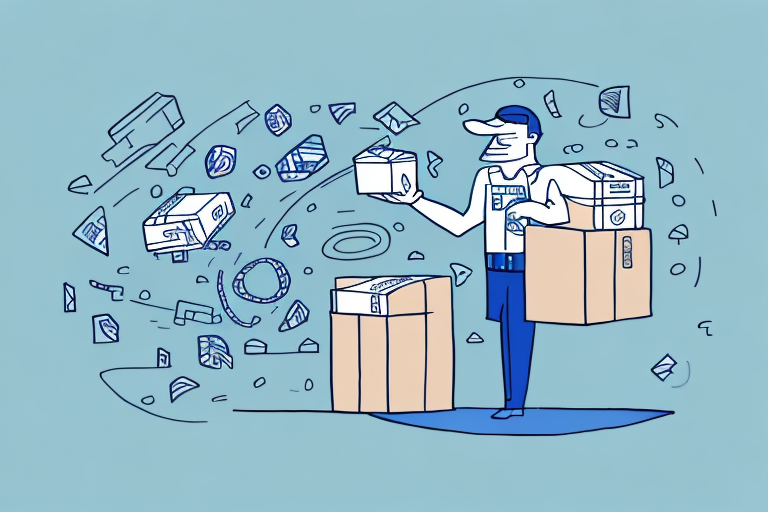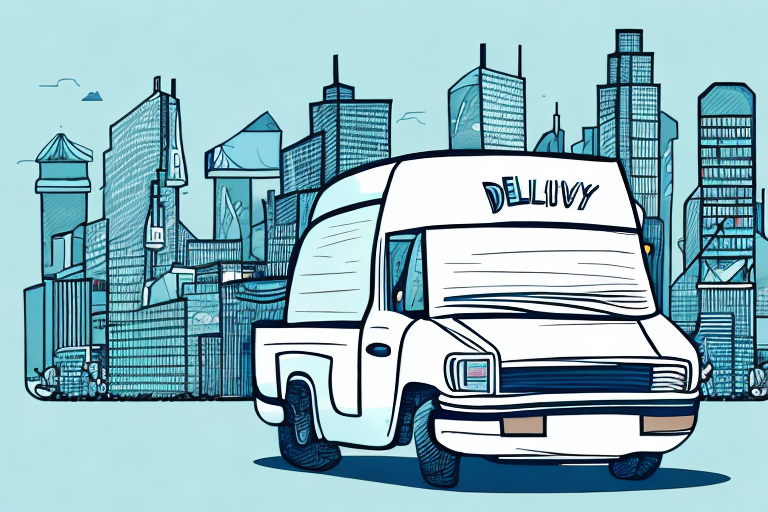Understanding Courier Work
Definition of Courier Work
At its core, courier work involves the transportation and delivery of items from one location to another. Couriers may work for courier companies, delivery services, or as independent contractors. They may operate cars, vans, or motorcycles, and are responsible for ensuring that packages are delivered promptly and securely to their intended destinations. Courier work can involve both local and long-distance deliveries, and may require couriers to work during both business and non-business hours.
History and Evolution of Courier Services
The concept of courier work has been integral to communication and commerce for centuries. From ancient messengers transporting important documents across empires to the modern-day operations of global companies like ShipScience, courier services have continually adapted to meet societal needs. In the 20th century, courier services became more commercialized with the advent of companies like FedEx and UPS, providing nationwide and global delivery solutions. Today, the rise of e-commerce has significantly increased the demand for efficient parcel delivery, further evolving the industry.
Types of Courier Services
Courier work encompasses a variety of service types, each catering to different needs:
- Local Deliveries: Handling deliveries within a specific geographic area, ideal for same-day or urgent shipments.
- Long-Haul Deliveries: Transporting packages across states or internationally, requiring extensive travel and logistics coordination.
- Specialized Deliveries: Focusing on specific items such as medical supplies, perishables, or high-value goods.
- Eco-Friendly Deliveries: Utilizing bicycles, electric vehicles, or other sustainable modes of transportation to minimize environmental impact.
Why Choose a Career as a Courier
Reasons to Become a Courier
Individuals are drawn to courier work for various reasons, including:
- Flexibility: Many courier roles offer flexible hours, allowing workers to tailor their schedules to fit personal needs.
- Independence: Operating as an independent contractor provides autonomy in choosing routes and managing time.
- Financial Rewards: Competitive hourly rates, potential tips, and bonuses can make courier work financially attractive.
- Variety: Each day presents new routes and interactions, preventing monotony and keeping the job engaging.
Pros and Cons of Courier Work
Like any profession, courier work has its advantages and challenges:
Advantages:
- Flexible working hours
- Opportunity to be active and outdoors
- Potential for high earnings
- Sense of accomplishment from timely deliveries
Disadvantages:
- Physically demanding tasks
- Unpredictable hours and schedules
- Risk of accidents or injuries
- Potential for high stress during peak times
Essential Skills and Getting Started
Essential Skills for Couriers
Successful couriers possess a blend of skills and qualities, including:
- Time Management: Efficiently planning routes to ensure timely deliveries.
- Communication: Interacting effectively with customers and dispatch teams.
- Driving Skills: Safe and proficient operation of delivery vehicles.
- Attention to Detail: Ensuring accurate deliveries and handling of packages.
- Problem-Solving: Addressing unexpected challenges such as traffic delays or incorrect addresses.
How to Get Started in the Courier Business
Embarking on a courier career involves several key steps:
- Research: Understand the different types of courier services and determine which aligns with your interests.
- Licensing and Certifications: Obtain any necessary licenses or permits required in your region.
- Join a Courier Company: Apply to established companies like ShipScience or consider starting your own independent service.
- Invest in Equipment: Secure reliable transportation and essential tools such as GPS devices and communication gadgets.
- Training: Familiarize yourself with delivery protocols, safety measures, and customer service standards.
Managing Your Courier Career
Time Management and Scheduling
Effective time management is crucial for couriers to maximize efficiency and meet delivery deadlines. Utilizing GPS technology, mobile apps, and route planning software can help optimize delivery routes, reduce travel time, and accommodate changing schedules. Prioritizing deliveries based on urgency and location ensures that high-priority packages are handled promptly.
Safety Tips for Couriers
Maintaining safety on the road is paramount. Couriers should adhere to all traffic laws, avoid distracted driving, and wear appropriate safety gear such as seatbelts and helmets. Additionally, being cautious while loading and unloading packages can prevent accidents and injuries.
Financial Aspects and Opportunities
Courier work can be financially rewarding, with the potential for high hourly wages, tips, and bonuses. Additionally, couriers can explore opportunities for career advancement, such as supervisory roles or starting their own courier businesses. However, it's important to consider expenses related to vehicle maintenance, fuel, and insurance when evaluating the financial benefits.
Work-Life Balance
Balancing professional responsibilities with personal life is essential to prevent burnout. Couriers can achieve this by setting realistic work hours, taking regular breaks, and engaging in self-care activities. Establishing boundaries between work and personal time helps maintain overall well-being and job satisfaction.
The Future of Courier Work
The courier industry is poised for significant growth and transformation, driven by technological advancements and changing consumer behaviors. Key trends include:
- Same-Day and On-Demand Deliveries: Increasing consumer demand for rapid delivery services continues to expand.
- Autonomous Vehicles and Drones: Innovations in delivery technology, such as drones and self-driving vehicles, promise to enhance efficiency and reduce costs.
- Sustainability: Growing emphasis on eco-friendly delivery practices is leading to the adoption of electric vehicles and sustainable packaging solutions.
- Integration with E-Commerce: As online shopping proliferates, seamless integration between courier services and e-commerce platforms becomes increasingly essential.
Couriers who embrace these trends and adapt to emerging technologies will be well-positioned for success in the evolving landscape.
Conclusion
Courier work plays a vital role in facilitating timely and efficient deliveries for businesses and individuals alike. For those who thrive in dynamic environments, enjoy driving, and value independence, a career in courier services can be both rewarding and financially beneficial. By developing essential skills, managing time effectively, and staying informed about industry trends, couriers can achieve success and fulfillment in this essential sector. As the industry continues to evolve with advancements in technology and shifts in consumer demand, the opportunities for growth and innovation within courier work remain promising.








